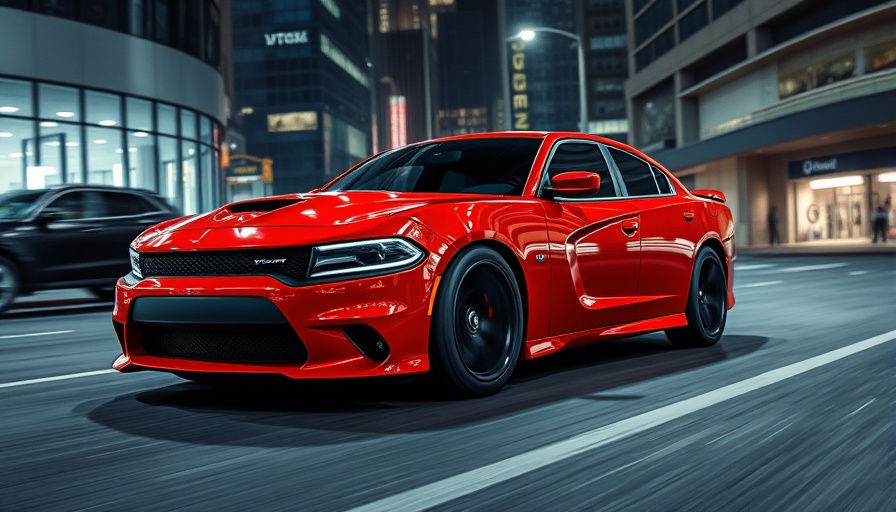
The Unraveling of the Charger Daytona: A Cultural Shift in the Automotive Industry
Dodge's decision to cut the entry-level Charger Daytona R/T from production for the 2026 model year underscores a profound shift not just in consumer preference but also in the auto industry’s relationship with electric vehicles (EVs). As America’s largest automaker in muscle cars, the company's musings over whether to continue a product that isn’t flying off dealership lots speaks to a broader question: are consumers ready to embrace electric muscle, or do they merely want traditional gas-guzzlers?
Despite the promised performance benefits of hybrids and EVs, it seems Dodge's efforts to introduce the Charger Daytona R/T—advertised at $61,590 but available at steep discounts—has resonated poorly with its enthusiast base. A recent report highlighted listings all the way down to $34,184, indicating these attempts to drive consumer interest have instead turned the vehicle into a product to be dumped.
Is Muscle Car Culture Ready for the Electric Age?
The Charger Daytona R/T was heralded as a bridge into the new electric future for muscle cars. However, it appears that buyers are committed to their traditional gas-powered muscle vehicles. While there is burgeoning interest in EV technologies, a segment of consumers remains skeptical about the true viability of electric performance when it comes to nostalgia-infused models like the Charger.
Enthusiasts may feel that while EV technology has its appeal, nothing can replicate the rumble and raw power of a V8 engine. This cultural attachment is manifesting as a continued demand for gas-powered options, raising urgent questions about whether a demographic that has flourished on gas muscle will accept a silent, battery-powered alternative.
The Scat Pack Survives: A Glimmer of Hope?
Despite the challenges faced by the Daytona R/T, the Charger Daytona Scat Pack is reportedly set to remain in the Dodge lineup, complete with impressive specs entailing 630 hp and 627 lb-ft of torque. Dodge has announced potential price adjustments for the Scat Pack for 2026, hinting that consumers may still find noteworthy options in the muscular Dodge lineup, even while noting a performance dip in the absence of the R/T.
Furthermore, plans for a new four-door version and the introduction of a twin-turbo variant highlight Dodge's strategy to evolve within this market. Such moves could indicate a possible pivot towards blending tradition with cutting-edge technology, potentially enticing buyers back to the brand.
Decoding the EV Market
The broader automotive landscape reveals a pattern; automakers like Dodge are learning that simply transitioning models to electric is not enough without strategic marketing that redefines the narrative around performance. The perceived disconnect between current EV offerings and customer expectations illustrates that brands must do more than just flip the switch; they must also connect the emotional and experiential threads that make driving powerful.
Summary of Insights and Future Considerations
In light of the Charger Daytona R/T's discontinuation, potential buyers of muscle cars and EV enthusiasts should remain attuned to how manufacturers will navigate the crossroads of performance and sustainability. Will they drown in the nostalgia of gas engines, or will they seize the moment to redefine muscle in a new electric era? As consumers, coupling their muscle car fantasies with expectations of eco-friendliness seems to paint an intriguing picture of the future in automotive trends.
To keep abreast of developing trends in the automotive industry and electric vehicle innovations, consumers are encouraged to educate themselves on the latest models and market adaptations. The future of cars may very well depend on a combined understanding of tradition and technology.
 Add Row
Add Row  Add
Add 




 Add Row
Add Row  Add
Add 

Write A Comment